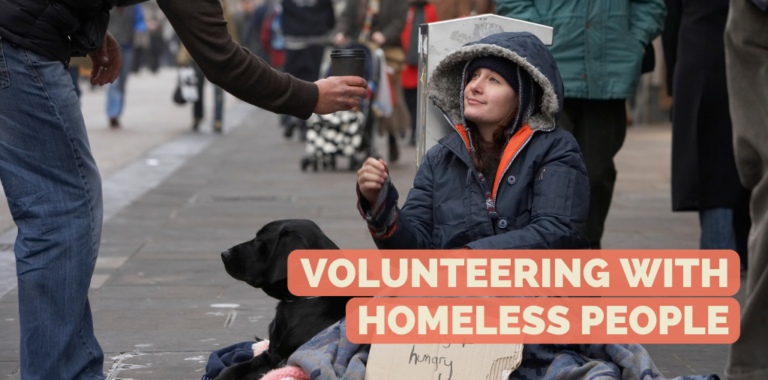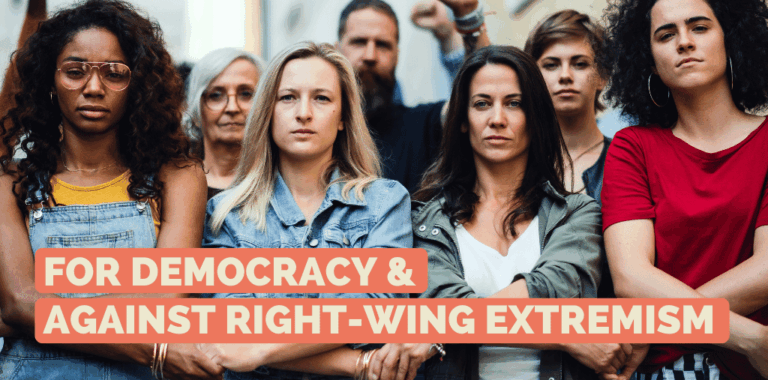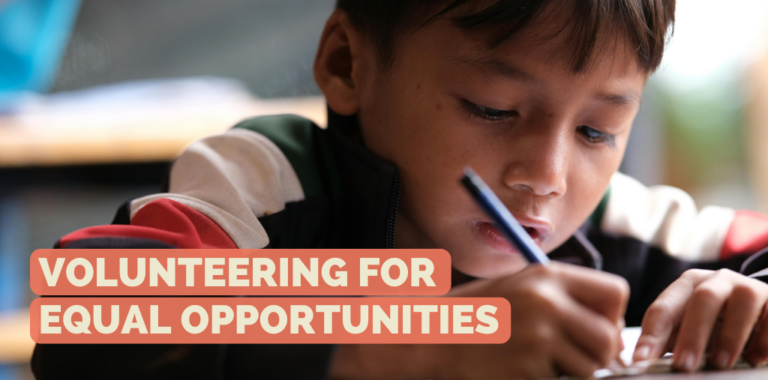Feminist foreign policy | Why it is important for all of us & what you can contribute yourself
[As of 03 March 2023] Together with Development Minister Schulze, Foreign Minister Baerbock has presented guidelines for a feminist foreign policy. According to these guidelines, “Feminist foreign and development policy should ‘in future permeate all areas’ of foreign policy action”. (Source: Tagesschau) This sets out concrete measures for the goal of a more sustainable and just world policy through the inclusion of marginalised groups.
Here we explain the goals of a feminist foreign policy and why this is so important, especially against the backdrop of armed conflicts like the one in Ukraine. We also give you an insight into how you yourself can contribute to a more just (and feminist) society – including a number of links and recommended reading.
- What is Feminism today?
- Why is this important for Foreign Policy?
- How can you contribute to a more equal world?
1. What is Feminism today?

Originally, “feminism” was defined by the Duden (German dictionary) as a “direction of the women’s movement that strives for a fundamental change in patriarchal culture”. In the course of the last decades, however, it has undergone significant development. You can find a fascinating article on the development of the term at EDITION F (only in German). Today, according to the Duden, feminism stands for:
“Generic term for various movements that advocate for equal rights, self-determination and freedom for all genders, especially women, and against sexism, e.g. by striving for a fundamental change in social norms (e.g. the traditional distribution of roles) and patriarchal culture.“
– Duden –
This newer definition already makes it clear that it is not about a purely female perspective or a supposedly aspired supremacy of women. It is about a form of society that places equality and participation of all people at the centre. The focus is on strengthening and protecting those who are affected by disadvantage, discrimination or violence. This still affects women particularly often, especially in wars and conflicts.
But as intersectional feminism (see definition of UnWomen) makes clear, discrimination and oppression go far beyond gender and also concern personality traits such as ethnicity, (social) origin or disabilities. Only if we recognise this diversity and multi-layeredness of people and include it in decision-making processes can we create an equal world and sufficiently protect disadvantaged groups.
2. Why is this important for Foreign Policy?

As with a modern understanding of feminism, feminist foreign policy is not primarily about putting women in decision-making positions, but considering all people and perspectives of our diverse world in foreign policy decisions.
“Currently, power resources are mainly in the hands of privileged men. Feminist foreign policy means wanting to break down these patriarchal structures in foreign and security policy. It also demands that the focus of foreign policy is not on military strength but on human security.“
– Kristina Lunz | activit, author & co-founder of the Centre for Feminist Foreign Policy –
It is not only with the war crimes in Ukraine that it becomes clear that the safety of particularly defenceless people must have a higher priority. And crimes against them must be clearly condemned as war crimes. According to Deutschlandfunk, “in crises and conflicts, different and overlapping forms of discrimination must be taken into account – be it racism, homophobia and transphobia or rejectionism […]. This requires, among other things, that negotiating delegations be as diverse as possible”.
According to a study by the Graduate Institute Geneva, the increased involvement of women in peace processes makes peace more durable and stable. This is not primarily because women are more peaceful. It is because they bring an additional perspective, that of women, and thus include a significant part of the population. It is precisely this approach that can and should be applied to other disadvantaged groups and their (protection) needs included in decision-making processes.
3. How can you contribute to a more equal world?

The current debate on feminist politics makes it clear once again that a society based on solidarity and justice – in times of crisis as well as in times of peace – can only succeed if we allow and promote its diversity. To this end, you can find diverse volunteering opportunities on vostel.de to support
Become active now for a more equal and feminist society!
We hope we have been able to give you a first insight into the topic of feminist foreign policy. If you want to dig deeper into the topic, we would like to give you the following recommendations to read and watch (all in German):
- Guidelines for Feminist Foreign Policy of the German Foreign Office
- An Overview & Assessment of the German Government’s Feminist Foreign Policy
- Information on UN Resolution 1325: “Women, Peace and Security”
- Book recommendation: Krisitina Lunz. The future of foreign policy is feminist. How global crises must be solved
- Articles, analyses and podcasts of the Heinrich Böll Foundation on feminist foreign policy
- Compact explanatory video by Die Da Oben (FUNK)
Your vostel.de team wishes you a joyful volunteering for more equality!









No Comments yet!